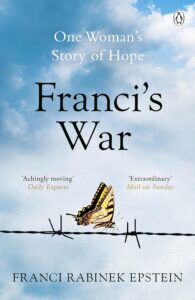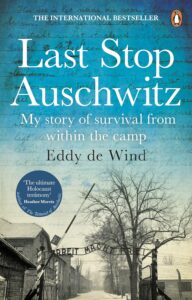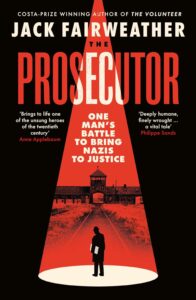Brave & Resourceful
Franci’s War by Franci Rabinek Epstein is a powerful account of the author’s time spent in various concentration camps during World War II.
We also briefly hear of the author’s background and there is an afterword by her daughter. The inclusion of photos is great to be able to put faces to names.
Although Franci Rabinek Epstein’s family was Jewish, they were not practicing Jews. Indeed, her father said “I am a Czechoslovakian citizen of German nationality.”
As the 1930’s progressed and their liberties were eroded, her father “believed in German decency, justice, honor and civilization.”
Her mother was in the business of haute couture, and the author followed in her footsteps. This was to be of an advantage in the camps as she was able to work as a seamstress. Later the author worked as an electrician (her father’s trade) in the camps. She was resourceful. This plus luck, helped her to survive.
Continue reading


